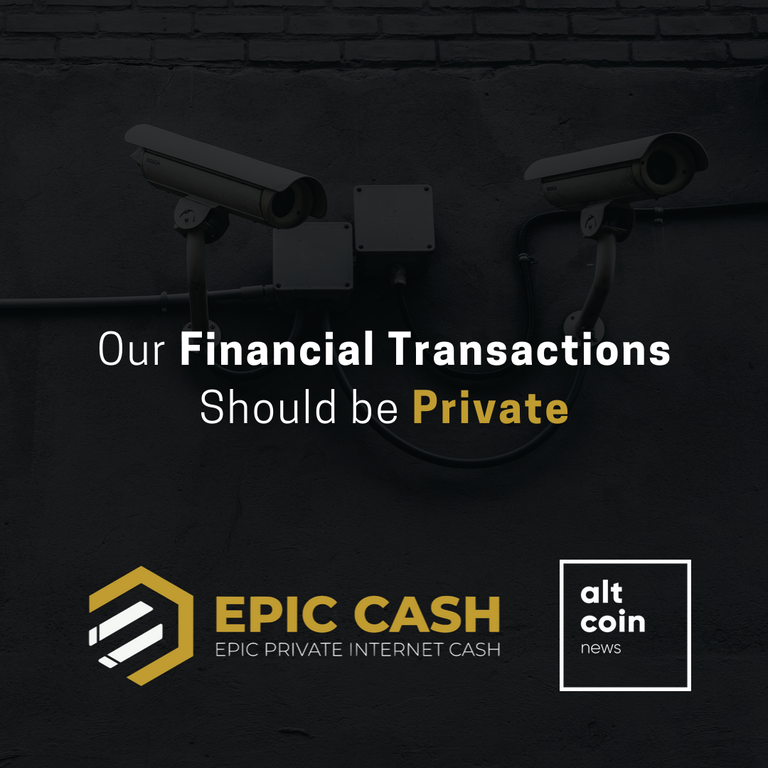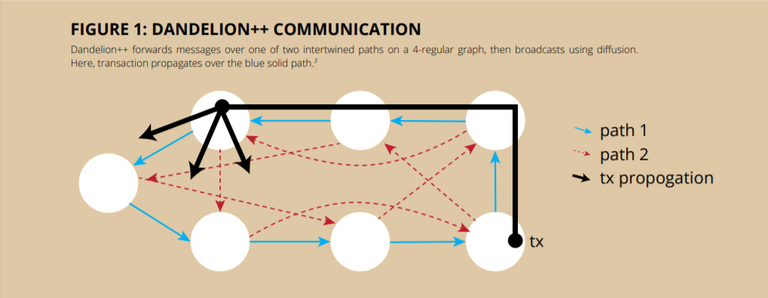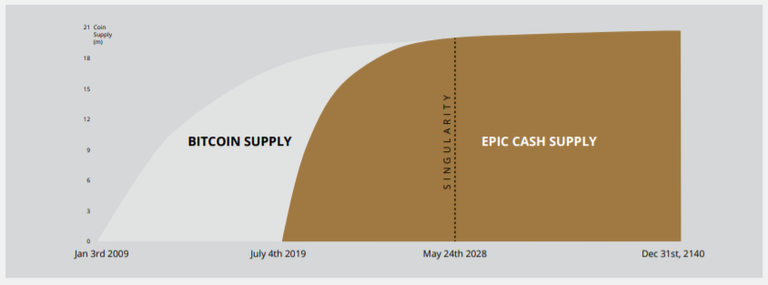
When I first went down the rabbit hole of cryptocurrency I remember people saying that Bitcoin was anonymous. We also saw the media say things like,
“Due to Bitcoins privacy, the cryptocurrency is being used to fund illicit activities and allow users to transact without fear of being tracked”.
In 2019 we all know that this was not true. Sure, there are ways to mitigate the issue of being tracked but the majority of Bitcoin users do not bother.
Today it seems every company from Coinbase to Bittrex is requiring some sort of KYC and AML in order to send and receive Bitcoin. If you are a believer in privacy, like myself, then the idea of the world, corporations, and government knowing everything about your financial transactions sends shivers down your spine.
How Bitcoin and Cryptocurrency Came Into My Life.
I remember clearly the financial collapse of 2008. For over two years I had learned everything I could about Austrian economics and precious metals. I grew up in a family of coin collectors so I had a solid base but it took the reading of, “Crash Proof” by Peter Schiff to reignite my passion for having assets outside the traditional financial system. I went on a multi-year internet rabbit hole that introduced me to people like Dr. Ron Paul, Doug Casey, Peter Spina of (GoldSeek.com) and of course Jeff Berwick. I don’t remember exactly who first informed me about Bitcoin but I do know it was on Youtube. It was in mid-2011.
In May 2011 I had already made the decision to move to Panama and start a new life. Things were just starting to get interesting. I was writing about Gold, Silver and hard assets. Bitcoin just made sense to me. If people were buying precious metals to protect their financial privacy then I believed Bitcoin could also be a store of value that could protect privacy. We now know it is not that easy.
The Days of KYC and AML are Here to Stay. How Did it Happen?
You have to admit we sure had a good run. Cryptocurrency as a new space made many of you wealthy. I believe in our rush to increase wealth and adoption we have forgotten some of the core principles of why a new form of currency and store of value was conceived.
In the early days of Bitcoin, our community largely consisted of people who adamantly believed in privacy but as a large number of speculators joined the Bitcoin Gold Rush they did not care about the principles of the early adopters. I remember having many conversations with these new users. Privacy is not something these people care about.
So we have seen the rise of KYC and AML as companies deliver exchanges, wallets, and dapps that require you to provide your identity in order to use. Now I am not saying this is a terrible thing but if you want to keep your money private this does not help.
The Moment I Realized Privacy Was Important in Crypto.
I remember the first time I realized that my transactions being open for everyone to see was problematic. Back in early 2017 Anabell Hilarski and I were building quite a following on the Steem platform Steemit. Early on in our Steem journey, we worked our tails off and built up a substantial amount of Steem. The price had dropped considerably so we did not think much about how much Steem in USD terms could be seen by the public.
Then the price of Steem began to rise considerably. All of a sudden Steem users were screenshotting accounts and talking about how much SteemPower other users had. I thought to myself, “we better lower our exposure!” So we began a series of power-downs on the Steem platform that lowered the amount of publicly seen Steem.
I also recall a few times when my Mother-in-law would mention to my wife, “oh, I see that you have $20k worth of Steem in your account”. In my mind, this is a big red flag! No family member, much less the public, has any business knowing how much money I have in my bank account.
The Consequences of Giving up Privacy.
I personally believe that we are in the last stages of human freedom. If we give up our financial privacy 100% then George Orwell and his book, “1984” was just off by a few decades. We are seeing the use of id systems in China that should scare the hell out of us. People are being restricted from travel and being socially ostracized.
Now take what China is doing to its citizens and then add the capability to control every aspect of their finances. This is what I believe the path of a global currency will look like minus privacy features. We are already seeing countries like Sweden going cashless. Less than 15% of transactions in Sweden are completed via physical currency. There are many more countries discussing how to accomplish a cashless society.
As a cryptocurrency believer, user and evangelist I think the responsibility of providing a private means of exchange is our responsibility. We know through experience that governments whether authoritarian or not would love to have every citizen finances 100% transparent and open. Do you really want to live in a world without privacy? I sure don’t!
Cryptocurrency Privacy Coins.
One of my favorite parts of Crypto is the sub-genre of privacy coins. Here we have projects like Monero, Dash, ZCash, and Grin. These coins make up approximately a 1% portion of the total market cap of the cryptocurrency space. During the bull run of 2017 Monero, Dash and ZCash all sat in the top ten of the total crypto market cap.
How do Privacy Coins Accomplish Privacy?
Monero:
“Monero uses three different privacy technologies: ring signatures, ring confidential transactions (RingCT), and stealth addresses. These hide the sender, amount, and receiver in the transaction, respectively. All transactions on the network are private by mandate; there is no way to accidentally send a transparent transaction.”
Dash:
“All the Dash in your wallet is comprised of different “inputs”, which you can think of as separate, discrete coins. PrivateSend uses an innovative process to mix your inputs with the inputs of at least two other people in a single transaction, so the value in Dash never leaves your wallet. You retain control of your money at all times.”
ZCash:
“At the core of Zcash technology are zero-knowledge proofs, which allow transaction data to be validated without revealing information about the amount and the parties involved. Zcash uses specific zero-knowledge proofs called zk-SNARKs (zero-knowledge succinct non-interactive arguments of knowledge).”
Grin:
“Grin, as a MimbleWimble implementation, natively uses a transaction format called Confidential Transactions (CT). By “natively” we mean that in Grin, CTs are not just an extension of another transaction format that helps hide amounts: Grin uses CTs for all transactions.”
Epic Cash Joined the Privacy Coin Lineup on September 2nd, 2019.
If you have been paying attention to the technology development of the cryptocurrency space you might have noticed the rise of MimbleWimble over the last year. On January 3rd, 2019, Beam launched its mainnet. On January 15th, 2019 Grin launched with much fanfare when they had Grincon on January 28th.
A few members of the Epic Cash community heard about MimbleWimble and its privacy capabilities. Intrigued they learned everything they could about the code. The Epic Cash community decided to take, what they felt, was the best of Bitcoin and add the MimbleWimble code. They have created a coin that has the emission rate of Bitcoin but the privacy features and the space efficiency MimbleWimble offers. I personally think this could shake the world of crypto.
What is MimbleWimble, Coinjoin and the Dandelion++ Protocol?
“MimbleWimble is a blockchain design with no script support and blinded amounts. Like proverbial black holes, transaction outputs have no hair. This simplicity allows aggressive compaction and aggregation, resulting in a blockchain with much better scalability than any other design to date.”
— Andrew Poelstra
The Epic Cash blockchain protects the privacy of individuals and their transactions by:
- Eliminating Wallet Addresses
- Dandelion++ Protocol.
- Confidential Transactions
- CoinJoin
EPIC Cash makes the transactions private by obscuring the amounts and who is the sender or receiver of the transaction. Using Coinjoin EPIC Cash will also bundle transactions. Dandelion++ Protocol. Improving upon its predecessor, the original Dandelion Protocol, the Dandelion++ Protocol is a result of 7 researchers’ continued work to combat deanonymization attacks on the blockchain. Through Dandelion++, transactions are passed over random intertwined paths, or ‘cables’, and then suddenly diffused to a large network of nodes, like the pods of a Dandelion flower when blown from their stem. This makes it nearly impossible to trace transactions back to their origin, and thus their originating IP addresses.

“Tainted coins are very destructive. If you break fungibility and privacy, you break the currency.”
— Andreas Antonopoulos
Bitcoin, as we know, is more transparent than the community tends to admit. Users must increasingly take steps to ensure they don’t inadvertently transact in tainted Bitcoin. The Epic Cash solution leans towards anonymity and restores this essential property by ensuring that both the privacy of the individual and privacy of transactions are engineered into the system at a fundamental level.
Charlie Lee, the creator of Litecoin, stated that fungibility was the only property of sound money missing from Bitcoin and Litecoin, admitting that privacy and fungibility were the next battlegrounds for those coins.
On March 19, 2018, the U.S. Office of Foreign Asset Control (OFAC) announced it was considering including digital currency addresses to the list of Specially Designated Nationals (SDN), which are entities with whom U.S. persons or businesses are forbidden to transact.
Even more troubling, the OFAC has not ruled out the inclusion of addresses currently holding tainted coins on to the SDN List, which would effectively place innocent owners of tainted cryptocurrency on a criminal blacklist due to the affiliation of the tainted coins owned.
This all sounds like a nightmare for owners of cryptocurrency. This has led New York University legal professor, Andrew Hinkes, to quip, “kiss fungibility goodbye,” and that the public should expect “a premium on freshly minted coins, or traced clean coins…”
The Epic Cash team is working hard to make sure Fungibility is a cornerstone of the cryptocurrency.
What is the Difference Between Bitcoin and Epic Cash?
Like Bitcoin, Epic Cash is a proof of work digital currency. Epic cash also has a total supply of 21,000,000 coins. On the other hand, Epic Cash has a shorter confirmation time for blocks (1 minute). The Epic Cash blockchain also stores much less data. This results in faster synchronization time for nodes, generally lower fees, faster transactions, and less space required for storing the blockchain. All of this supports long term decentralization and scalability.
The history of transactions on the Bitcoin blockchain is public and permanently preserved. This means the transaction history associated with every coin is public, Epic Cash is fully fungible.
Bitcoin is almost exclusively mined by ASICs. While Epic Cash can be mined by anyone who has a computer during the initial phases. This makes it more accessible and can help establish a wide user base in a short amount of time. The Epic Cash team believes having a far-reaching community helps secure the network, decentralize the network and help build a vibrant community.

Epic Cash is Aimed to be the Fairest CryptoCurrency Launch Since Bitcoin.
If you are interested in mining Epic Cash you have a wide range of choices to participate.
-RANDOMX & CPUS
-PROGPOW & GPUS
-CUCKATOO31+ AND ASICS
Check Out the Epic Cash Whitepaper Available in 23 Languages, and Join the Community Today.
It is Difficult to Admit That My Precious Bitcoin Has Flaws But I Believe We Have an Answer to Alleviate the Pain.
I will still hold Bitcoin but I think it will be wise to take a look at privacy coins like Epic Cash. What will you do?
MimbleWimble looks to be a huge competitor soon, I’ve been mining $BEAM since January 👍🏽
Posted using Partiko iOS
Great move! Check out Epic Cash as well.
Agreed that privacy in crypto is paramount. Also it is evident that more exchanges are demanding KYC /AML etc.
For instance, in Australia (one of the 5 eyes intelligence alliance) local based exchanges are now regulated which means subject to digital scrutiny and reporting to various authorities.
Interesting since Australian Government has a Bill before Parliament to outlaw cash transactions over $10,000 AUD; It is not clear how they intend to treat crypto transactions. NB: penalty $20,000 fine and / or imprisonment 2 years!!
A war on cash is a war on the people! Welcome to Orwell's 1984.
I acquired some PIVX probably 2 years ago but like many alt coins they have not achieved widespread adoption.
A potential competitor for Monero, Dash etc is a new kid on the block: Apollo - https://apollocurrency.com/en/
Apollo offers inter alia various privacy tools, fast transactions and soon its own decentralised exchange.
I never heard of Apollo, thanks for that!
Congratulations @hilarski! You have completed the following achievement on the Steem blockchain and have been rewarded with new badge(s) :
You can view your badges on your Steem Board and compare to others on the Steem Ranking
If you no longer want to receive notifications, reply to this comment with the word
STOPTo support your work, I also upvoted your post!
Do not miss the last post from @steemitboard:
Vote for @Steemitboard as a witness to get one more award and increased upvotes!